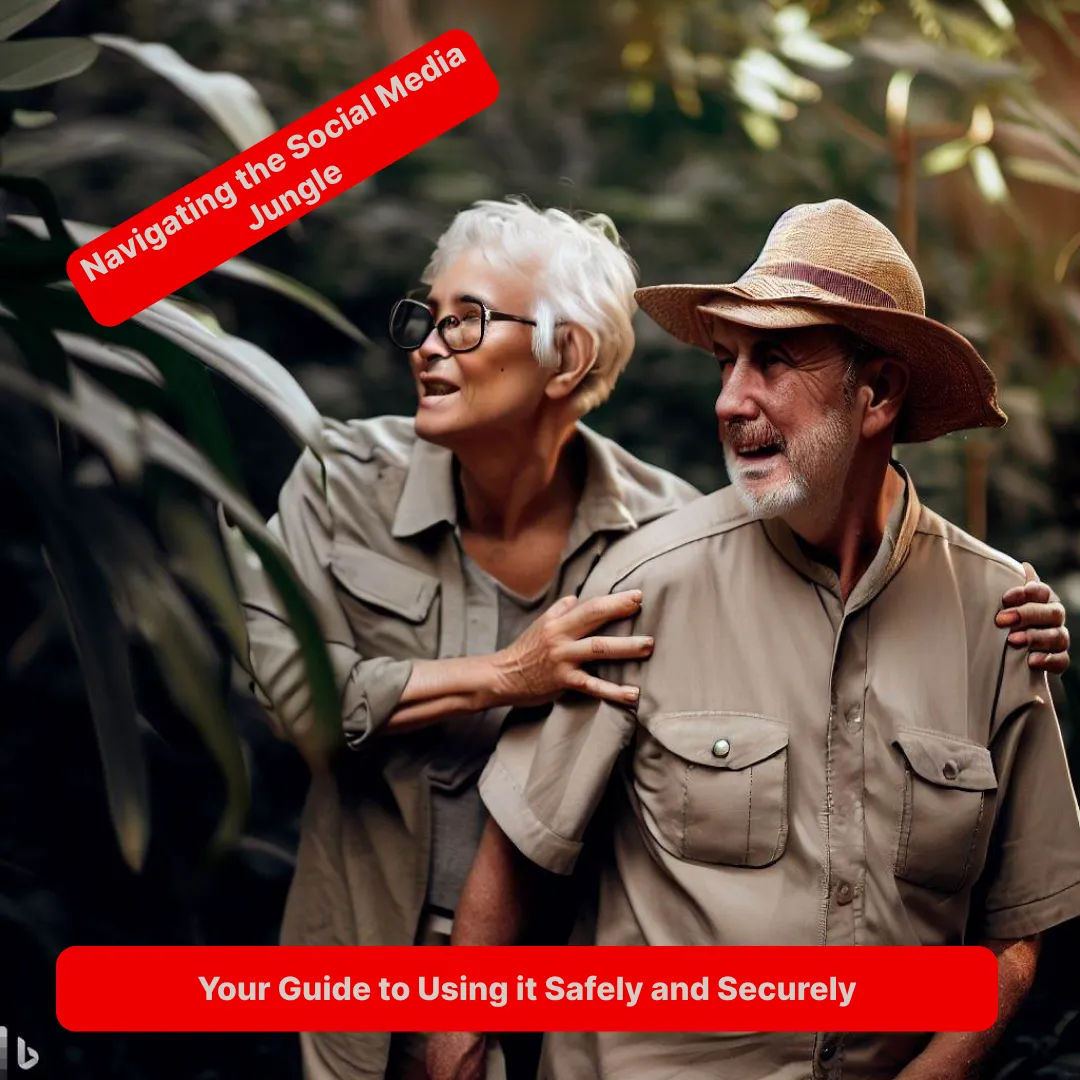In this digital age, social media has become an integral part of our lives, connecting us with friends, family, and the world. But while it offers great opportunities, it’s important to use social media safely and securely to protect yourself and your privacy. In this article, we’ll explore some practical tips and best practices to help you navigate the social media jungle with confidence. So, grab your digital machete, and let’s get started!
Strengthen Your Password Game
The first line of defense in securing your social media accounts is having a strong password. Avoid using obvious choices like “123456” or “password.” Instead, create unique, complex passwords that include a mix of uppercase and lowercase letters, numbers, and special characters. Don’t reuse passwords across multiple platforms, as this leaves you vulnerable if one account gets compromised. Consider using a password manager to securely store and generate strong passwords. Regularly change your passwords to stay one step ahead of any potential threats.
If you use a password manager (and you know you should) see this article about how to protect your passwords even if your password manager gets breached.

TOZO T10 Wireless Bluetooth Earbuds
The Tech Boomer recommends these wireless bluetooth earbuds. Clear, crisp sound—plus they’re easy on the wallet!
View on Amazon →This post may contain affiliate links. As an Amazon Associate, I earn from qualifying purchases.
If you don’t use a password manager, The Tech Boomer recommends 1Password.
Beware of Phishing Attacks
Phishing is like the chameleon of cyber threats, constantly evolving to trick unsuspecting users. Be cautious of suspicious emails, messages, or links claiming to be from social media platforms. Legitimate companies will never ask for your password or personal information via email. Always double-check the sender’s email address or the link’s URL before clicking on anything. When in doubt, visit the official website directly by typing the address into your browser. It’s better to be safe than sorry!
Control Your Privacy Settings
Social media platforms provide privacy settings to help you control who sees your posts and personal information. Take the time to review and adjust these settings according to your comfort level. Limit your profile visibility to friends or a specific audience. Be mindful of the information you share publicly, such as your birthdate or phone number, as these can be used for identity theft. Regularly check your privacy settings to ensure they haven’t been changed without your knowledge.
Think Before You Share
Remember, once something is on the internet, it can be challenging to completely remove it. Think twice before sharing personal or sensitive information, embarrassing photos, or controversial opinions. Consider the potential impact of your posts on your reputation, relationships, or future job prospects. Use privacy filters to control who can see your posts, and be cautious about accepting friend or follower requests from people you don’t know. It’s always better to be selective and maintain a positive digital footprint.
Update and Secure Your Devices
Social media safety isn’t just about your accounts; it’s also about your devices. Keep your devices updated with the latest operating system and security patches. Install reliable antivirus software to protect against malware and viruses. Enable two-factor authentication (2FA) whenever possible, adding an extra layer of security to your accounts. Lock your devices with a PIN, pattern, or biometric authentication. Losing your device can mean losing access to your accounts, so taking these precautions is crucial.
In Conclusion
Social media can be a wonderful tool for staying connected, sharing experiences, and discovering new opportunities. By following these simple tips, you can enjoy the benefits of social media while keeping yourself safe and secure. Remember, a little caution goes a long way in the digital realm. Stay vigilant, trust your instincts, and be mindful of the information you share. With these practices in place, you’ll be well-equipped to navigate the social media jungle and make the most out of your online experience. Happy exploring!

OTC Hearing Aids for Seniors
OTC Hearing Aids for Seniors, Hearing Aid Amplifiers Devices Rechargeable with Noise Cancelling, Superior Sound Quality for Adults Women Men Hearing Loss, Auto On/Off
View on Amazon →This post may contain affiliate links. As an Amazon Associate, I earn from qualifying purchases.




